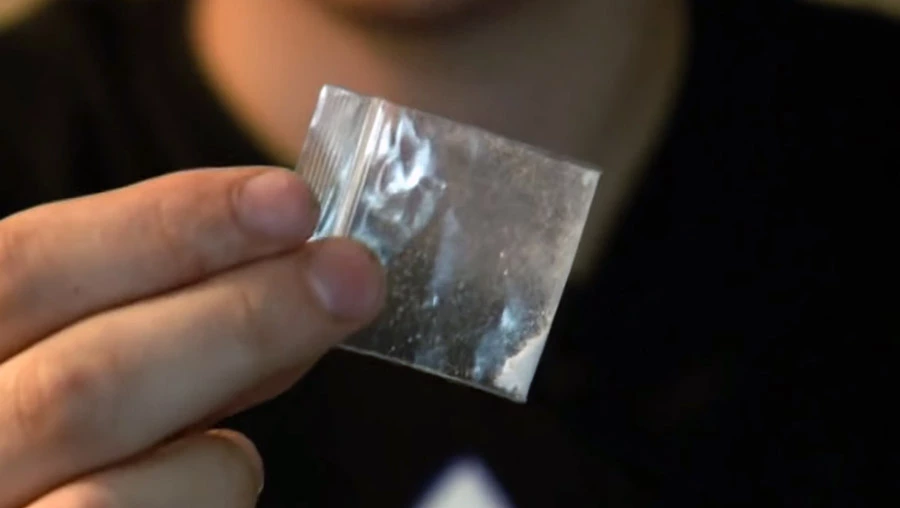Effective Programs for Fentanyl Abuse
Fentanyl addiction is a terrible thing to deal with. A fentanyl overdose could potentially kill someone. If someone suffers from fentanyl addiction, they should seek help. Addiction in all its forms can be hard to overcome. Yet fentanyl addiction treatment options give people the tools they need to leave their addiction behind.
What is fentanyl addiction treatment, and why is it important? How does it benefit someone? What is the process that a person has to go through to overcome their addiction?
Read on to find out why fentanyl addiction treatment is such a crucial part of leaving your addiction behind, and how to find the right treatment options for you at Resurgence Tennessee!
What is Fentanyl?

Fentanyl is a synthetic opioid painkiller that’s highly potent and used for treating severe pain or managing pain after surgery. It is a strong synthetic opioid analgesic that is similar to morphine but is 50 to 100 times more powerful It’s also sometimes used to treat pain that is both chronic and isn’t relieved by other more conventional prescription drugs.
Fentanyl is a Schedule II drug in the United States, meaning it has a high potential for abuse and addiction but can be prescribed by doctors for legitimate medical uses. Commonly, fentanyl is used by cancer patients to combat the pain of cancer treatment. It is commonly prescribed in the form of a fentanyl nasal spray.
Fentanyl works by breaking down in the body and attaching itself to receptors in the brain that control pain signals and emotions. When these receptors are stimulated by fentanyl they send messages to the brain that reduce pain signals and cause relaxation and euphoria (high). There is usually near-immediate pain relief. Over time, you can become dependent on fentanyl’s effects so you need higher doses of medication to achieve the same results.
The Rise of Fentanyl in the World of Substance Abuse
According to the Centers for Disease Control and Prevention (CDC), opioids are responsible for more than half of all drug overdose deaths annually in the U.S., with prescription pain relievers playing a role in almost 40 percent of those overdoses. Prescription opioids account for approximately 15 percent of all U.S. opioid misuse deaths each year.
The majority of people who become addicted to opioids begin using them as prescribed by their doctors after surgery or an accident or because they are experiencing chronic pain from an injury or medical condition such as cancer or arthritis. Many patients receive these medications from their doctors without realizing that they can lead to addiction if taken incorrectly or used longer than directed by their physician.
Immediate Help For Fentanyl Addiction
888-290-5254
Of course, there is the street aspect to fentanyl and its role in substance abuse overall. Fentanyl has become increasingly available because its potency makes it cheaper for dealers than heroin or cocaine. Other opioid drugs obtained on the street have also been increasingly cut with fentanyl, leading to many more cases of fentanyl overdose. Because there is no sort of “quality control” on the illicit fentanyl market, the majority of the time you might not how much of the drug you’re actually consuming. This is, in large part, responsible for the significant increase in overdose deaths.
How Does Fentanyl Addiction Affect Your Body?
Fentanyl addiction can have devastating effects on your physical health and your brain chemistry. The truth is that fentanyl addiction has a lot in common with many other prescription opioids and other drugs. Drug abuse in general can wreak havoc on your body and your life. Being addicted to fentanyl is simply one of the many ways you can develop a substance use disorder.
When taken at high doses, fentanyl can result in a life-threatening respiratory depression so severe that the system stops working altogether. This can lead to death by overdose or asphyxiation if you lose consciousness while underwater or in a confined space such as a bathtub. Fentanyl stimulates the areas of your brain that control nausea and vomiting reflexes, which may make you feel sick if you take too much or combine it with other prescription drugs.
Fentanyl can cause dry mouth and throat because it affects the nerve pathways that control saliva production and swallowing. This can make it difficult for users to swallow food or liquids, which can lead to dehydration and nutrient loss over time. It also causes an increase in heart rate because it alters the way signals move through the central nervous system (CNS) by interacting with opioid receptors throughout your body — including those located in your cardiovascular system.
What are the Underlying Causes of Fentanyl Addiction?
Due to the fact that, controlled though it is, Fentanyl is a prescription opioid that still gets recommended by doctors, there are many ways you might fall into the awful trap of fentanyl abuse. The most common way is that you may have had a condition and been prescribed medication to relieve severe pain.
This is particularly tragic because drug addiction has a huge amount of debilitating risks associated with it. However, with fentanyl being so easily found on the streets now, more than ever, it is important to ask the question of the underlying things that can cause a person to develop a substance use disorder. Let’s examine a couple of the more influential factors.
Environment
Your surroundings have a large impact on whether or not you are predisposed to drug abuse. This can be things like your social circles or even just your physical surroundings. Socioeconomic factors come into play here, which can explain why certain marginalized and disadvantaged communities seem to be so disproportionately affected by the opioid crisis.
Genetics
Some people are genetically predisposed to being more sensitive to the effects of drugs such as opioids or alcohol than others are. If you have a family history of substance abuse, it’s more likely that you’ll be at risk of developing an addiction yourself.
Pre-Existing Conditions
Trauma experienced during childhood or adolescence can lead to later problems with substance abuse and addiction in adulthood. This may be due to changes in brain chemistry that occur after exposure to stress hormones during critical periods in childhood development. In addition, mental illness may cause people to seek out drugs or alcohol as a way of coping with their feelings of stress or depression. Self-medication is perhaps one of the most common ways that you can end up struggling with addiction.
Why are Fentanyl and Other Opioids Dangerous?

The truth is that drug addiction, across the board, has major implications for your life. The harm the drug does to your physical health and the frequency with which overdose occurs is typically the thing that most people focus on, but the truth is that there are so many ways that these substances are harmful to your life.
Fentanyl addiction, as well as addiction to other illicit drugs, can affect the relationships you have with your loved ones and friends. They can lead you to financial ruin and in some cases can even lead to legal troubles. Engaging in illegal sales with drug dealers for controlled substances could potentially lead to prison sentences. The truth is that, beyond health issues, addiction has the potential to touch and affect every aspect of your life.
How Common are Overdose Deaths from Fentanyl Addiction?
In 2017, overdose deaths involving fentanyl increased by 45% since 2016, according to the Centers for Disease Control and Prevention (CDC). Fentanyl was involved in one-third of all overdose deaths in 2017, up from one-fifth in 2016.
The problem with fentanyl is that it can be lethal at very small doses — even just 2 milligrams of pure fentanyl powder can cause death in some cases — which makes it easy for fentanyl users to overdose accidentally without knowing what they are taking beforehand.
24 Hour Opioid Addiction Hotline
888-290-5254
What are the Warning Signs of Opioid Addiction?
The signs of opioid addiction can vary depending on the individual, but there are some warning signs that are common to many people who struggle with this condition. Knowing what some of these signs are and being able to recognize them can be extremely helpful in getting ahead of addiction before it spirals too far. Intervention, at any point, is always preferable. Some of the more common signs include:
- Loss of interest in activities once enjoyed
- Changes in sleep patterns (sleeping more or less)
- Changes in eating habits (losing or gaining weight)
- Withdrawal symptoms when not using opioids (e.g., nausea, vomiting)
Opioid Withdrawal Symptoms: What Can You Expect?
Fentanyl withdrawal is a process that occurs when you stop taking an opioid or reduce the dose of your current medication. The painful withdrawal symptoms are the result of your body trying to adapt to the absence of a substance that it has become dependent on. They can be particularly severe in people who have been taking opioids for a long time, as well as those who have been taking high doses.
Symptoms of fentanyl withdrawal include:
- Agitation and anxiety
- Muscle aches
- Sweating
- Runny nose and sneezing
- Insomnia (difficulty sleeping)
- Restlessness
- Diarrhea or constipation
- Depression
In general terms, it takes about three weeks for most people to experience significant improvement in their symptoms of fentanyl withdrawal. Depending on the extent of your fentanyl use, you may need up to six weeks or more before you feel better enough to start working on your recovery goals.
Should You Consider Professional Fentanyl Addiction Treatment?

Fentanyl addiction treatment can offer support that a person needs to break their dependence on the substance. Fentanyl addiction is a growing problem across the United States. Despite the common belief, it’s actually not wise for you to try to treat fentanyl addiction entirely on your own. Fentanyl abuse has all of the hallmarks of most major drug addictions.
For this reason, we recommend that if you or someone you love is addicted to fentanyl you seriously consider the use of a fentanyl addiction treatment. The recovery process for opioid addictions has various components that usually need to be properly administered for successful rehabilitation.
The fentanyl addiction treatment options available at Resurgence Tennessee are evidence-based and in accordance with industry standards for effective treatment.
Inpatient vs Outpatient Addiction Treatment
There are two main types of treatment for fentanyl addiction: inpatient and outpatient. Inpatient treatment (also known as residential treatment) offers patients the best chance to overcome their addiction, but it comes with many challenges. For example, it requires leaving behind most aspects of life as we know it and entering a new environment where you can focus on healing from your drug use without distraction or temptation. On the other hand, outpatient treatment is often less expensive and offers more flexibility, but it also comes with some limitations that may make it harder for you to recover.
24 Hour Fentanyl Addiction Treatment
888-290-5254
Inpatient treatment allows you to live at the facility while receiving medical care and counseling on an around-the-clock basis. This type of program usually lasts 30 days or longer, during which time you’ll live in a dormitory with other patients who are going through similar experiences.
You’ll be able to participate in group therapy sessions every day and attend lectures about substance abuse and recovery throughout the day. Counselors will work closely with each patient to tailor their plan of action so that they can achieve their specific goals while away from home during treatment.
Flexibility and Accountability in Outpatient Opiate Treatment
Some people prefer outpatient treatment because it allows them to continue living at home while getting treatment. However, outpatient treatment provides fewer resources and support than inpatient programs.
In addition, there is no rule that states someone must enter an inpatient program immediately after detoxing from opioids or fentanyl; many people choose outpatient treatment as the first step toward recovery before entering an inpatient program later on. At the end of the day, the major point is that it is possible, with help, to overcome fentanyl addiction.
The Components of a Good Fentanyl Addiction Treatment Program

Getting past fentanyl dependence isn’t an impossible task but it does require the tools and interventions possible with professional fentanyl addiction treatment. Treatment centers are equipped with qualified staff and facilities to properly administer the treatment process. In general, the process occurs in three steps. It starts with a medical detox, followed by behavioral therapy, and concludes with the intervention and establishment of aftercare. Let’s examine these three components in a bit more detail.
Medical Detox
In order to get effective treatment for fentanyl addiction, you must first undergo medical detoxification from the drug before beginning treatment with medication-assisted treatment (MAT). During medical detoxification, you’ll be given medications designed to help manage withdrawal symptoms so you can safely taper off drugs without experiencing the severe pain of withdrawal symptoms.
Medical detox is so important because the severity of withdrawal symptoms is actually a barrier to persons successfully completing rehab. Many times, the symptoms prove too severe and persons end up relapsing rather than dealing with the pain of the drug cravings and the body’s rebellion to depriving it of the substance it had become so addicted to.
Behavioral Therapy
The goal of behavioral therapy is to help people stop using drugs, reduce their drug use and prevent relapse. Behavioral therapy works by helping patients develop more effective coping skills to deal with the situations that lead them to use drugs, as well as teaching them how to avoid high-risk situations that lead to drug use.
Behavioral therapy can take place one-on-one between the therapist and patient or in a group setting with other people who are also receiving behavioral therapy for addiction. There are many different types of behavioral therapies used in addiction treatment. Some common types include:
Cognitive behavioral therapy or CBT
This type of therapy teaches patients skills like problem-solving, managing stress, and anger management through exercises and structured homework assignments. CBT may also be used along with other forms of treatment like medication or counseling in order to help improve outcomes for patients.
Motivational interviewing
MI helps people make personal decisions about their behavior based on personal values rather than what someone else wants them to do. For example, if someone wants to stop using opioids because they want a better life for themselves and their family but doesn’t know how MI can help them figure out what this means for them personally so they can make these changes themselves without relying on someone else for support or guidance.
Dialectical Behavior Therapy or DBT
DBT is a type of therapy that focuses on teaching people skills they can use during emotional distress. It was originally developed as an approach for treating borderline personality disorder but is now widely used as a general therapeutic tool for treating substance use disorders and other mental health conditions involving intense emotions. The goal of DBT is not to eliminate difficult feelings but rather to help clients manage these feelings more effectively so they can function better in daily life and achieve their goals.
Dual Diagnosis Treatment
Dual diagnosis therapy is a type of treatment for drug addiction that also addresses other mental health issues. In some cases, mental health disorder precedes substance abuse, while in other cases it’s developed as a result of drug use.
Either way, dual diagnosis treatment is essential for both conditions because it allows for a greater understanding of triggers and patterns that contribute to relapse. These issues may include depression, anxiety disorders, bipolar disorder or schizophrenia. Dual diagnosis therapy provides an integrated treatment plan designed to address both substance use and mental health problems simultaneously.
The Importance of Sober Support Groups

Support groups are a common part of the treatment process. Support groups provide a safe, supportive environment where addicts can meet with others who are going through similar experiences.
They are an important part of recovery because they help people feel less alone and supported in their recovery. They also give users a chance to connect with others who have similar experiences and understand what they’re going through.
Support groups work differently for each person depending on what kind of support they need at that time. Some people may not feel comfortable talking about their feelings with others yet, so instead will choose to listen only at first until they feel more confident about sharing themselves with other group members later down the line.
24 Hour Addiction Treatment – Call Now!
888-290-5254
Other people may want to talk but aren’t sure how exactly, which is why there is usually someone leading the meeting who will guide everyone through what’s going on at any point in the meeting.
Seek Fentanyl Addiction Treatment at Resurgence Today!
Fentanyl addiction can be debilitating and scary. Don’t take a chance with your life. Start the process of regaining control today by getting in touch with us. At Resurgence Tennessee, our expert, qualified team is standing by to speak with you. After an evaluation, an individualized plan, targeted and designed to your specific case will be proposed.
Treatment at our industry-leading facilities will ensure that you have the support and guidance necessary to take control of your life again. Make a confidential call today and learn about the options for help available, the time to start recovery from fentanyl is now!





